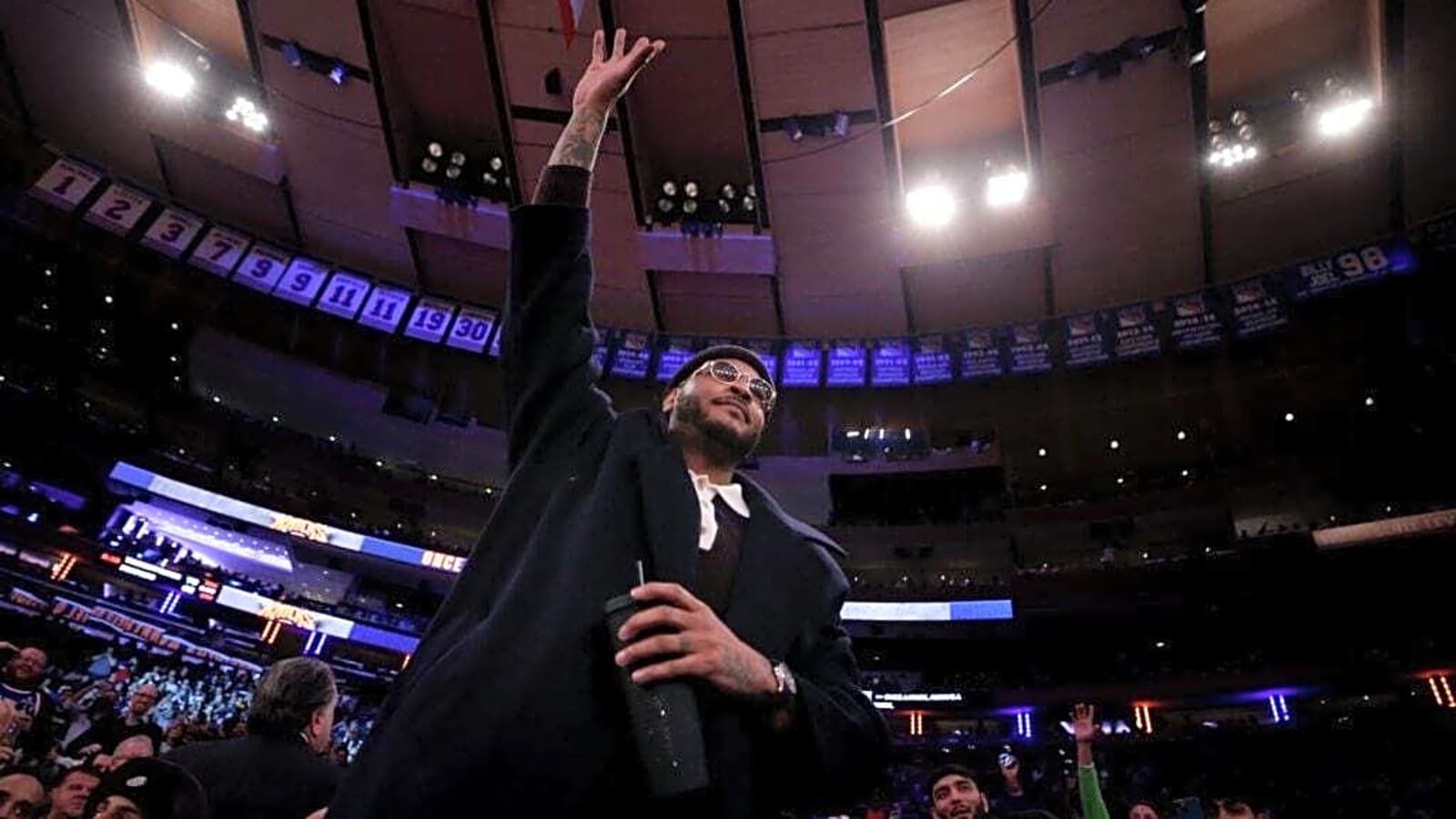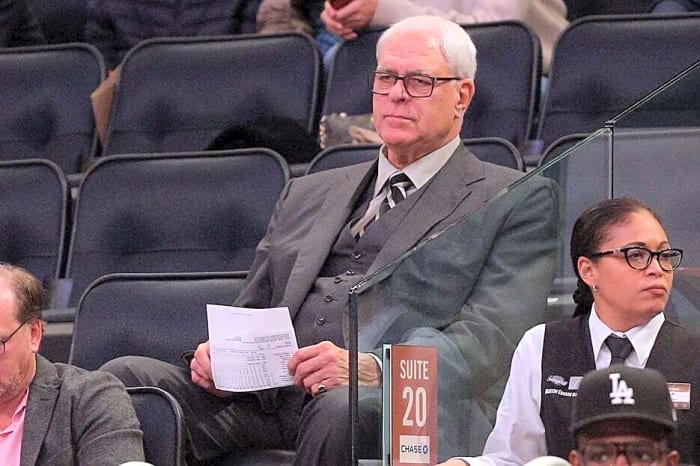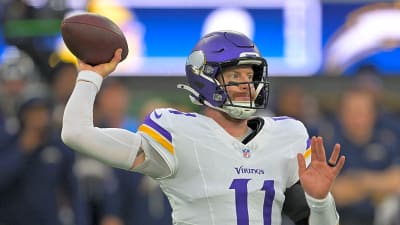
NEW YORK — Phil Jackson built a legacy as one of basketball’s most successful executives and coaches. He won championships as a coach with the Bulls and Lakers, then parlayed that pedigree into a front-office role in New York. Jackson arrived in Manhattan with a reputation for delivering results, and that résumé bought him time and deference in an unforgiving market.
How Carmelo Anthony Ended Phil Jackson’s Time On The Knicks
The zen master who managed egos

Jackson earned the “Zen Master” tag for a reason. He guided larger-than-life personalities through championship runs, balancing Kobe Bryant’s intensity and Michael Jordan’s killer drive. He handled star egos while keeping systems intact. His method relied on discipline, ritual, and the structure of the triangle offense — a system that turned chaos into flow. But the Knicks environment was different.
A cultural mismatch forms with Melo
Carmelo Anthony arrived as the franchise’s marquee scorer. Melo expected the ball and the freedom that came with it, while Jackson wanted ball movement and the triangle’s spacing. Those two approaches clashed on principle and in practice. The relationship between Jackson and Anthony soured quickly as their philosophies collided. What had once seemed like a dream partnership between an all-time great coach and an elite scorer turned into a test of control, identity, and pride.
Dolan, the media, and a fractured trust
Ownership and media pressure only deepened the conflict. Knicks owner James Dolan fretted about headlines and locker-room drama as the relationship deteriorated. Jackson later recounted Dolan’s concern in his book. “+Dolan said to me, ‘Are you going to get run out of town by the media?’ I said, ‘I know who the media is; that doesn’t affect me,’” Jackson said in the Carmelo chapter of his book, Masters of the Game, a conversational read on the 75 greatest players through the lens of the legendary coach and Hall of Fame scribe Sam Smith. “But Dolan felt it was too much. He said, ‘I don’t want you to go through it. I know what it’s like to deal with these people.’ I said, ‘Unfortunately my relationship with Carmelo is kind of busted, and if he’s going to be here, it’s probably best that I go.’”That moment captured more than ego. It revealed a total breakdown between coach, owner, and star.
Jackson’s plea and the trade talks
Jackson tried to end the stalemate through honesty. “I had this meeting with Dolan, I said, ‘I don’t want Carmelo back on the team; we’ve got to find a way to trade him,’” Jackson said in the book. “I said, ‘Let’s sit with [Anthony’s agent] Leon Rose and explain we’re not going to win a championship. Carmelo wants a championship; he wants to be on a team that has a chance, and he should be; he’s a Hall of Famer.’” Jackson pitched realism over optics. He wanted to reset expectations, not just for Anthony’s sake but for the franchise’s future.
The triangle versus Melo’s iso legacy
The conflict came down to identity. Jackson’s triangle offense depended on shared reads, structure, and patience. Anthony’s best work came in isolation — creating offense from nothing. He never truly embraced the triangle’s constraints, and that refusal deepened mistrust between the two. Jackson saw it as defiance. Melo saw it as creative control. The rift eventually became too wide to fix, even for a figure as seasoned as Jackson.
The exit and the wider fallout
After Jackson left, Carmelo finally waived his no-trade clause and joined the Thunder in 2017, less than three months after Jackson’s departure. That move marked the end of one of basketball’s most combustible partnerships. The split left scars and a cautionary lesson for teams that lean too heavily on either system or superstardom. It also reinforced one truth: in the battle of authority versus autonomy, the star usually wins. The Carmelo Anthony -Phil Jackson saga still stands as a defining moment in Knicks modern history. It remains a vivid example of how mismatched visions can unravel even the most promising alliances.
More must-reads:
- Mavericks suing Stars is another step in new arena campaign
- Hornets' Kon Knueppel makes NBA history in blowout loss to Heat
- The 'Most 2,000-point NBA seasons' quiz
Breaking News
Trending News
Customize Your Newsletter
 +
+
Get the latest news and rumors, customized to your favorite sports and teams. Emailed daily. Always free!








